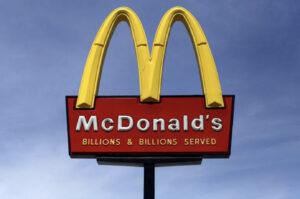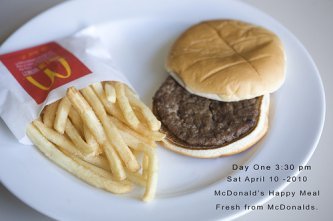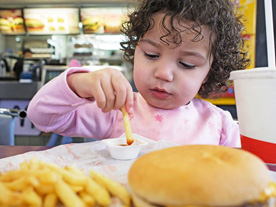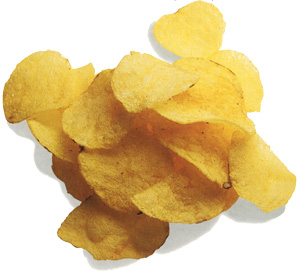Junk food is defined as foods and beverages that are poor in nutrients (such as vitamins, minerals, and fibre) but high in kilojoules, saturated fat, added sugar, and/or salt. Junk food consumption has been related to major health issues. Junk foods should not be a part of any diet.

 If we are not willing to settle for junk living, we certainly shouldn’t settle for junk foods. We’re pretty quick to kick junk people out of our lives, but it appears we are happy to eat junk, sometimes every day.The very foods we love to eat and the ones we buy from the supermarket and the ones marketed by the fast food companies often on the television are the foods that favour the overgrowth of yeast and bad bacteria in our digestive system. Before you are serious about eating and living well, it is advisable to make the right dietary changes you can read about on this website.
If we are not willing to settle for junk living, we certainly shouldn’t settle for junk foods. We’re pretty quick to kick junk people out of our lives, but it appears we are happy to eat junk, sometimes every day.The very foods we love to eat and the ones we buy from the supermarket and the ones marketed by the fast food companies often on the television are the foods that favour the overgrowth of yeast and bad bacteria in our digestive system. Before you are serious about eating and living well, it is advisable to make the right dietary changes you can read about on this website.
Are you “guilty” of eating take-away foods once, twice, or several times a week? Is it Uber Eats, or dial-a-pizza?
This is the very first thing to change, stop buying those fast foods and eat more at home. Buy fresh foods from your grocery store, butcher and Farmer’s Markets, you will be making healthier choices. This is the first step in the right direction, and one of THE most important foundational steps you take in reclaiming your health.
 Are you eating at McDonalds quite a lot? I can understand why a person my feel the need to buy a burger on occasion, but some people eat at McDonalds almost every day or second day. For some, it’s become their diet literally. Let’s look at the quality of this food first, then I’d like to talk about Morgan Spurlock who made the famous documentary called Super Size Me. I’ll conclude with some talk about cravings and addiction, and how you can BEAT them. It’s about staying strong and saying “NO”. I’ve worked with an amazing amount of people over the years, whom I happy to mention have moved away from eating a predominantly crappy diet, to only eating fresh and healthy meals. Let me look at somebody’s face, their eyes, skin, hair, and nails, and I’ll tell you how good their diet is.
Are you eating at McDonalds quite a lot? I can understand why a person my feel the need to buy a burger on occasion, but some people eat at McDonalds almost every day or second day. For some, it’s become their diet literally. Let’s look at the quality of this food first, then I’d like to talk about Morgan Spurlock who made the famous documentary called Super Size Me. I’ll conclude with some talk about cravings and addiction, and how you can BEAT them. It’s about staying strong and saying “NO”. I’ve worked with an amazing amount of people over the years, whom I happy to mention have moved away from eating a predominantly crappy diet, to only eating fresh and healthy meals. Let me look at somebody’s face, their eyes, skin, hair, and nails, and I’ll tell you how good their diet is.
A New York woman has published photos online regarding a McDonald’s Happy Meal, revealing how it has resisted decomposition after sitting in her house for six months. Artist and photographer Sally Davies began documenting the Happy Meal she brought in April and uploaded her shots of the meal each week to Flickr. After six months of photographing the meal on her kitchen bench, she found a shocking result.
The burger and chips remained the same and had not grown mould.
How can food like this be “nutritious” and beneficial to your health? Do you eat at McDonalds? Perhaps it is time you viewed the classic film “Super Size Me” regarding a guy who lived on McDonalds for weeks and was advised by his doctor to stop because his liver function was found to be compromised after regular blood testing.
Sally Davies: “The only change that I can see is that it has become hard as a rock,” she told the Daily Mail. “The food is plastic to the touch and has an acrylic sheen to it,” she says. The project began when  Davies heard a story about a rigid burger and when a friend said it wasn’t true, she wanted to prove them wrong. McDonald’s spokeswoman Theresa Riley refuted her claims saying: “Our hamburgers are cooked and prepared with salt, pepper and nothing else – no preservatives, no fillers. “Our hamburger buns are baked locally, are made from North American-grown wheat flour and include common government-approved ingredients designed to assure food quality and safety.
Davies heard a story about a rigid burger and when a friend said it wasn’t true, she wanted to prove them wrong. McDonald’s spokeswoman Theresa Riley refuted her claims saying: “Our hamburgers are cooked and prepared with salt, pepper and nothing else – no preservatives, no fillers. “Our hamburger buns are baked locally, are made from North American-grown wheat flour and include common government-approved ingredients designed to assure food quality and safety.
You make up your own mind – and if you feel that is is perfectly acceptable to be eating foods which don’t decompose, ask yourself this question: “why not?” What is in this food to keep it looking so good? There has got to me more than “nothing else”
Morgan Spurlock
The “mocumentary” Super Size Me saw Morgan Spurlock eating nothing but McDonald’s food for an entire month, 30 days, and the results were shocking to some at the time. No one thinks McDonald’s is healthy for you, but many also pointed out that Spurlock went out of his way to be as unhealthy as possible. Many others have tried slightly-more grounded experiments where they eat McDonald’s every day for a certain period of time, and the results are quite interesting.
From the possible weight loss to the destruction of bacteria in your gut, let’s take a look at what happens to your body when you eat McDonald’s every day. Daily consumption of McDonalds is a bad idea, but I don’t believe a burger “here or there” is going to make you sick. It’s what you do most of the time (every day) that counts, not what you do once a week or fortnight. There has to be a balance somewhere folks!
Some of the choices at McDonalds aren’t too bad, but it’s up to you to decide how much sugar, salt, and fat, you want to consume by selecting the healthiest options from the menu. Like skipping the soda drink for water. Like avoiding the fries and sundaes. You may like the “taste” of McDonald’s foods, but this will be generally down to the copious amounts of sugar, salt and fat you are consuming at the time. We’ll discuss the hormone dopamine in a moment, and how this hormone’s release is powerfully triggered by sugar to reward us by “making us feel good”. It turns out that a sugar hit to the brain is literally as addictive as a drug hit. (Rada 2006)
You’ll want more and more and even more. You get addicted and hooked on sugar, because it “makes you feel good”, or so it seems, but what you may not know is – your addiction has started.
 When the brain starts to crave particular foods, usually processed foods that aren’t thought to be healthy or nourishing, people frequently experience cravings. The conscious mind recognises that they are unhealthy, but some other area of the brain appears to disagree. Others struggle to control their food choices, while some people don’t have this problem.
When the brain starts to crave particular foods, usually processed foods that aren’t thought to be healthy or nourishing, people frequently experience cravings. The conscious mind recognises that they are unhealthy, but some other area of the brain appears to disagree. Others struggle to control their food choices, while some people don’t have this problem.
This isn’t a result of a lack of willpower; rather, the problem is far more complicated. The truth is that junk food stimulates the brain’s reward system in the same way that addictive substances like cocaine do. Junk food addiction, which has the same molecular basis as drug addiction, can develop in vulnerable individuals.
New research indicates that men and women may respond differently to external food cues, and that the intrauterine environment may significantly impact a child’s subsequent risk of developing obesity, diabetes, elevated cholesterol and heart disease. (Blumenthal 2010)
It’s not hard to see how you can easily become a food addict. Your brain has a system known as the reward system. This mechanism was created to foster survival-related behaviour by rewarding the brain. Primal habits like eating are included in this instinctive response. (Carter 2016).
When a person consumes food, the brain recognises that they are acting appropriately and releases feel-good chemicals (hormones) into the reward system. Dopamine, a neurotransmitter that the brain interprets as pleasure, is one of the key feel-good hormones. The brain is built to seek out any actions that cause the reward system’s dopamine to release. Dopamine makes us feel good, satisfied.
The problem with junk food today, it has the drawback of giving your brain a reward that is significantly stronger than any reward it might receive from whole meals. Urges to eat are influenced by stimuli in the environment that are associated with food (food cues). Obese people are more sensitive to food cues, reporting stronger craving and consuming larger portions after food cue exposure. (Oginsky 2016).
 Eating ice cream from Ben & Jerry’s is such a pleasurable for the brain, that a lot more dopamine is released than eating a piece of fruit, vegetables, or even meat, which may only have a mild effect by comparison. I’ve noticed that many people, especially those under stress, crave salty, sugary, and fatty foods like potato chips, candy, carbonated soda drinks, and french fries.
Eating ice cream from Ben & Jerry’s is such a pleasurable for the brain, that a lot more dopamine is released than eating a piece of fruit, vegetables, or even meat, which may only have a mild effect by comparison. I’ve noticed that many people, especially those under stress, crave salty, sugary, and fatty foods like potato chips, candy, carbonated soda drinks, and french fries.
When these types of foods are consumed, our brains reward us by producing the chemical dopamine, which makes us feel good. If we eat a lot of these rewarding foods, the brain makes more receptors for dopamine.
Eating junk food stimulates the production of dopamine. The more junk you eat, the more dopamine receptors are produced that stimulate an even higher desire for junk
 Dopamine receptors may begin to down-regulate when a person engages in a behaviour that releases dopamine repeatedly, like smoking cigarettes or consuming Mars bars. To maintain equilibrium, the brain starts eliminating dopamine receptors when it detects that the level of dopamine is too high. People start consuming more junk food to achieve the same amount of reward as previously because when there are fewer receptors, more dopamine is required to have the same impact. This is because tolerance has been built, it too much junk food has been consumed and increasing amounts of dopamine have been produced over time.
Dopamine receptors may begin to down-regulate when a person engages in a behaviour that releases dopamine repeatedly, like smoking cigarettes or consuming Mars bars. To maintain equilibrium, the brain starts eliminating dopamine receptors when it detects that the level of dopamine is too high. People start consuming more junk food to achieve the same amount of reward as previously because when there are fewer receptors, more dopamine is required to have the same impact. This is because tolerance has been built, it too much junk food has been consumed and increasing amounts of dopamine have been produced over time.
If there are less dopamine receptors, the person will have little dopamine activity and may start to feel depressed when they don’t get their junk food “fix.” This is known as withdrawal, and its not unlike alcohol or drug withdrawal. Addiction disorders have been linked to tolerance and withdrawal. Withdrawal have a range of distinctive effects on mind and behaviour patterns, some of them not so pleasant. Unfortunately, humans and rats have one big thing in common, they can get addicted to many things super easy.
Both humans and rats can physically become addicted to junk food in the same manner that they can physically become addicted to illegal narcotics like cocaine, according to numerous research on the animals (Avena 2007. Naturally, my explanation of the topic of dopamine, junk food and addiction is greatly simplified, but this is essentially how we believe that food addiction, or any addiction for that matter, works.
 An emotional condition known as a craving is characterised by the desire to eat a specific meal. It is distinct from basic hunger, which should not be mistaken with it. Sometimes, cravings seem to materialise out of nowhere. A person could be engaged in routine activities like reading, walking the dog, or watching their favourite TV show. Then all of a sudden, a craving for ice cream appears.
An emotional condition known as a craving is characterised by the desire to eat a specific meal. It is distinct from basic hunger, which should not be mistaken with it. Sometimes, cravings seem to materialise out of nowhere. A person could be engaged in routine activities like reading, walking the dog, or watching their favourite TV show. Then all of a sudden, a craving for ice cream appears.
Even though the cravings occasionally appear to come out of nowhere, they can be triggered by specific cues, also known as triggers. Simple cues include things like passing an ice cream shop or smelling pizza. They can, however, also be brought on by specific emotional states, such as loneliness or depression, which is a behaviour known as emotional eating.
The goal of a real hunger is to satiate the brain’s dopamine craving. It has nothing to do with the body’s requirement for food or energy. When a need strikes, it may begin to take over one’s thoughts. It’s challenging to focus on anything else when you have a yearning. It also makes it challenging to think about how consuming junk food affects your health.
Do You Give In To Cravings?
While having cravings is common (most people experience them in some way), repeatedly giving in to them and indulging in junk food despite having made a conscious effort to refrain from doing so raises red flags. When someone has a food addiction, their desires can be so intense that they breach self-imposed boundaries like only indulging in junk food on Saturdays.
Even though they are aware that their excessive eating is unhealthy, they may do it frequently. The notion that dieting makes people crave more food is unjustified since there is a more nuanced relationship between food restriction and hunger. Long-term energy restriction appears to reduce food cravings but short-term, selective food deprivation may in fact enhance them. This suggests that food deprivation can help get rid of conditioned food wanting responses. (Meule 2020)
Self Control Please
How to deal with cravings? How about a bit of self-control please, it’s all about having restraint. Just driving past the McDonalds drive-through, and take your lunch or supper at home instead. This is going to save you money, and buys you better health. The best thing in my opinion? When you become more “woke” about what you actually place inside mouth a few times a day to eat, and switch to healthy ways of eating, you influence those around you. They become increasingly less inclined to eat and drink crap as well. It’s been my experience with my family, friends and with the countless patients I’ve seen over the 34 years I was in practice. You’d be surprised how your change can be the catalyst for many, for the better. It’s got to be worth it. And all you had to do was put your foot on the gas pedal when you saw the Golden Arches, not the brake. Do this for two weeks, before you know it you’ve stopped eating there. It can happen to you!

The brain receives a reward when it satisfies cravings—a pleasurable sensation brought on by the release of dopamine. Cravings and eating addiction are mostly motivated by rewards. Food addicts obtain their “fix” by consuming a specific food till their brains are fully “doped-up”. The more frequently this cycle of rewarding and wanting occurs, the stronger it gets and the more food is required each time (Chao 2016)
The problem like ice cream, like all sugary snacks, is that the amount the person needs to get the hit, slowly increases over time. My father passed away at the age of 72 years after suffering for years with high blood pressure. Dad’s favourite snack food was vanilla ice cream, he consumed one gallon container (four litres) of ice cream every day for several years. He also craved sweetened condensed milk, we found in excess of 30 cans in his pantry. I remember when he started eating ice cream when I was a kid, at this stage three scoops of ice cream were sufficient.
Over many years, dad’s ice cream consumption would go up or down, depending on what was happening to him emotionally at the time. Ice cream was his preferred drug of choice, his hit, but it may as well have been methamphetamine or heroin. In the end, before he died, it was one gallon a day. Along with his half-a-dozen meds for diabetes, high-cholesterol, and high blood pressure. It was a sad ending to my father, an ending I’d dearly like others to avoid if at all possible. Uncontrolled cravings can lead to bingeing, overeating and obesity. Miss you dad.
Food addiction can result in serious physical and psychological issues over time. A lot of people who have battled food addiction for a long time conceal their eating habits. Additionally, they might be dealing with depression or anxiety, both of which can fuel addiction. The fact that most people are unaware they have a food addiction makes this situation worse. They might not understand that obtaining therapy for depression and anxiety can also help with addiction treatment and that they need aid to break their food addiction.
Unfortunately, addiction does not have a simple fix. There is no miraculous cure, mental trick, or dietary supplement that will quickly turn things around. It just doesn’t happen that way I’m afraid. It can be advisable to fully avoid trigger foods for many people. To overcome a food addiction, you might need to go and find expert assistance, and you may find a psychologist of use. Additionally, there are groups like Overeaters Anonymous (OA), which anyone can join without charge. It’s good to get support, especially if you want to kick the bad habit of eating junk foods all the time.
The official manual used by mental health professionals to classify mental disorders, the Diagnostic and Statistical Manual of Mental Disorders (DSM-5), now classifies binge eating disorder, which is linked to food addiction, as a feeding and eating disorder.